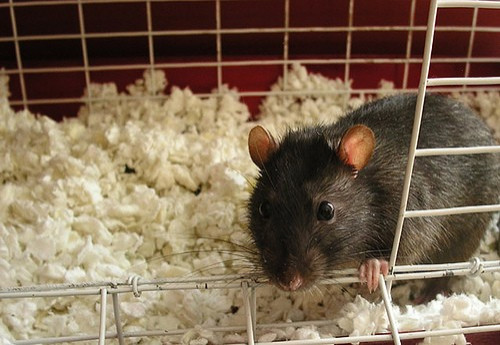Rats Free Friends: New Study Reveals Empathy, Compassion in Rodents

A new study by the University of Chicago is doing much to undermine the typical image of rats are greedy and selfish, with rodents showing compassion and empathy for their fellow rats and attempting to free them from their lab cages.
According to the study, this is the first time rats have been observed displaying compassion toward their fellow rodents in a lab setting, and one of the only studies to examine the level of empathy rats possess.
Urge to Help Trapped Companions
Most Americans, and certainly many New Yorkers, revile the rat as a filthy and disgusting creature, as much a symbol of selfishness and greed as a snake is of treachery and deceit.
At the University of Chicago, however, rats are coming to be associated with rather different words: compassion, empathy, kindliness and understanding.
In a series of experiment, researchers at the Chicago, Ill. lab placed two rats in a shared compartment. One rat was allowed to roam free, while another was trapped in a tiny cage.
Experimenters observed that once the rats learned how to open the tiny cage from the outside, they almost always chose to use that knowledge to free their friends.
Compassion, Empathy in Rodents
In order to try and eliminate as many motives for the rescues as possible, scientists set up a series of variables to examine how much of the rats' action were motivated by social interaction or by performing a new trick to see if they could get a reward.
Scientists found that the pattern held even when the trapped rat was freed into a different compartment, implying that social networks had less play in the decision. They also found, in an inverse of the original experiment, that rats would not try to open the cage if a fake rat was placed inside, even on the off-chance of a reward for the trick.
These studies seem to suggest that rats have empathy for their companions, and that freeing their rodent friends from the tiny cages comes above even such considerations that affect the first rat's own situation.
In perhaps the most significant display of compassion over self-serving, rats freed their distressed friends even when chocolate was offered by scientists as an alternative. Before even approaching the chocolate chips placed in a corner of the container, rats would move to free their caged companions first.
'That's really the first time it's been seen.'
More observations are needed to determine how much of the rats' behavior in these trials were motivated by empathy. It's very easy for human beings to name qualities like compassion and kindness as the reason for some animals' behavior, only to discover that the subjects had been acting for layered or even completely opposite reasons.
The study's authors, however, whose findings are published in the journal Science, say many humans still underestimate the ability for animals to have empathy and higher level of social functioning.
This is especially true when it comes to rodents, long one of the most reviled creatures (in the Western world) of the animal kingdom.
Jean Decety, a professor of psychology and psychiatry at the University of Chicago, is happy that this new study may end up proving that misconception wrong.
There are a lot of ideas in the literature showing that empathy is not unique to humans, and it has been well demonstrated in apes, but in rodents it was not very clear, Decety told Australia's News Limited. We put together, in one series of experiments, evidence of helping behavior based on empathy in rodents, and that's really the first time it's been seen.
Though one study won't go far enough to undo everyone's conception of rats as greedy and predominantly self-serving, reports like this one join other experiments supporting the idea that helping behavior (or, in layman terms, empathy and compassionate action) may be higher up on the evolutionary model of needs than previously thought.
© Copyright IBTimes 2025. All rights reserved.





















